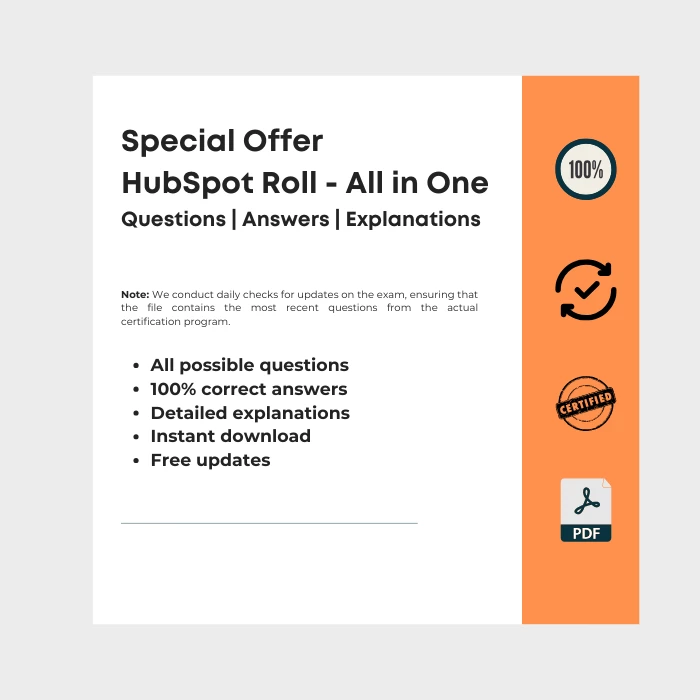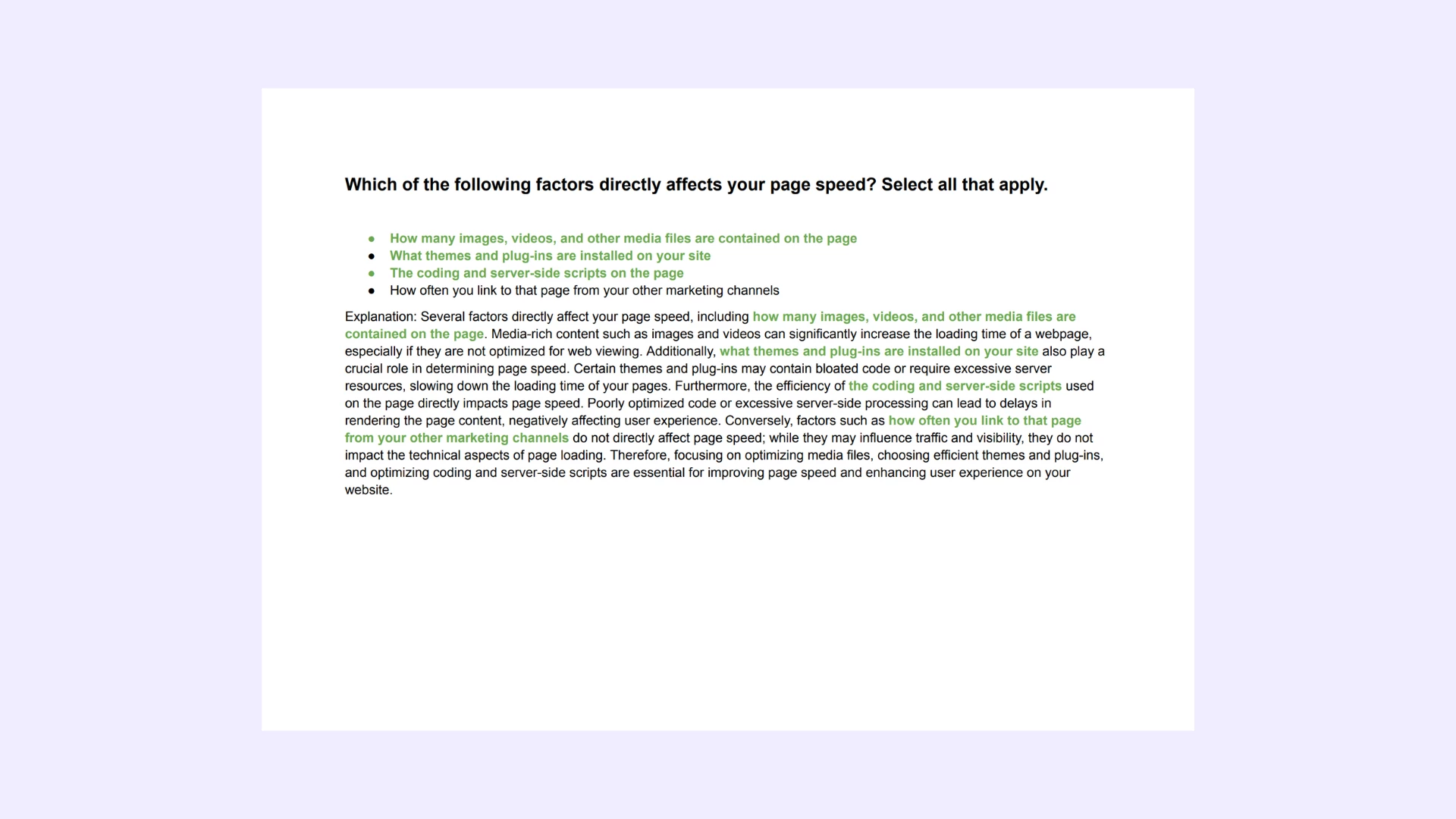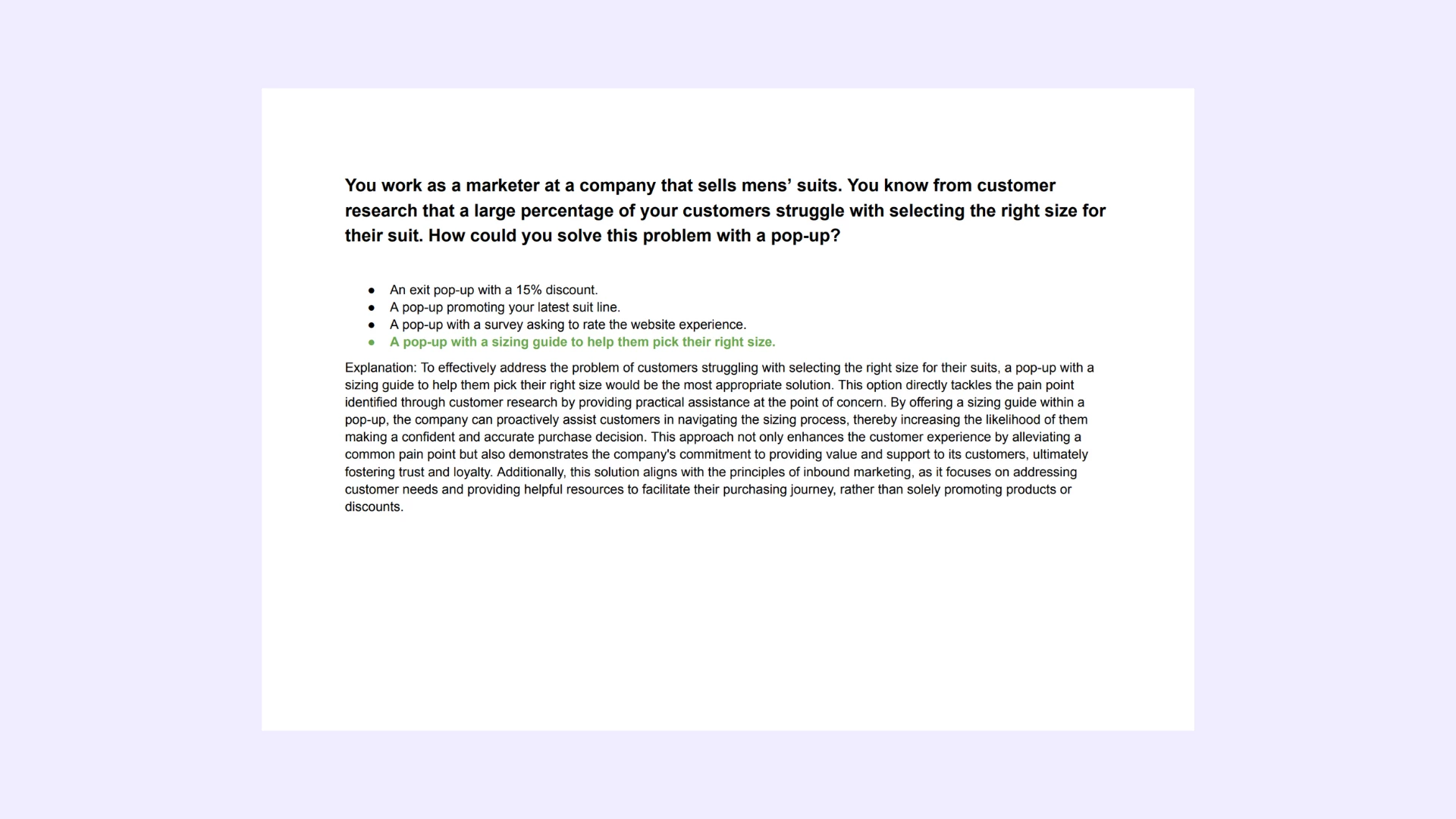All of the following are examples of SMART goals EXCEPT:
Have 30% of your marketing leads attend an upcoming webinar.
Have thought leaders contribute to an upcoming ebook.
Increase sales qualified leads by 20% by the end of the year.
Generate 10 customers within the first week of an upcoming product launch.

HubSpot Roll. Includes Answers for Every Real HubSpot Certification Exam.
All-in-One: Get all HubSpot exams answers with explanations in one bundle. This package includes answers for every current HubSpot certification. Regular updates to reflect the latest exam version. -> See what's included.


Need a single cerification exam answers? Check out our -> list of certification exams answer keys. Learn Smarter. Obtain or Renew your certificates with peace of mind!
Explanation: All of the following are examples of SMART goals EXCEPT:
Explanation: **Having thought leaders contribute to an upcoming ebook** is not an example of a SMART goal. SMART goals are Specific, Measurable, Achievable, Relevant, and Time-bound. The provided example lacks specificity, measurability, and time-bound criteria. While it mentions the involvement of thought leaders in an ebook, it doesn't specify how many thought leaders, what their contributions entail, or how their involvement contributes to the overall goal. Additionally, there's no clear measurement of success or timeline defined for completing the goal. In contrast, the other options clearly define specific, measurable, achievable, relevant, and time-bound objectives such as increasing marketing leads attending a webinar by 30%, increasing sales qualified leads by 20% by the end of the year, and generating 10 customers within the first week of a product launch. Therefore, the exclusion of having thought leaders contribute to an upcoming ebook as a SMART goal is accurate.

Special Bundle Offer HubSpot Roll. All in One
Note: We conduct daily checks for updates on the exam, ensuring that the file contains the most recent questions from the actual certification program.
Questions | Answers | Explanations. FREE Updates.
You may also be interested:
- Special HubSpot bundle offer - all HubSpot exams in one
- HubSpot CMS for develpers certification exam answers
- HubSpot CMS for develpers II certification exam answers
- HubSpot content hub for marketers certification exam answers
- HubSpot content marketing certification exam answers
- HubSpot contextual marketing certification exam answers
- HubSpot digital advertising certification exam answers
- HubSpot digital marketing certification exam answers
- HubSpot email marketing certification exam answers
- HubSpot frictionless sales certification exam answers
- HubSpot growth driven design certification exam answers
- HubSpot inbound certification exam answers
- HubSpot inbound marketing certification exam answers
- HubSpot inbound marketing optimization certification exam answers
- HubSpot inbound sales certification exam answers
- HubSpot integrating with HubSpot I foundations certification exam answers
- HubSpot marketing hub software certification exam answers
- HubSpot reporting certification exam answers
- HubSpot revenue operations certification exam answers
- HubSpot sales enablement certification exam answers
- HubSpot sales hub software certification exam answers
- HubSpot sales management certification exam answers
- HubSpot sales software certification exam answers
- HubSpot seo certification exam answers
- HubSpot seo II certification exam answers
- HubSpot service hub software certification exam answers
- HubSpot social media marketing certification exam answers
- HubSpot social media marketing II certification exam answers